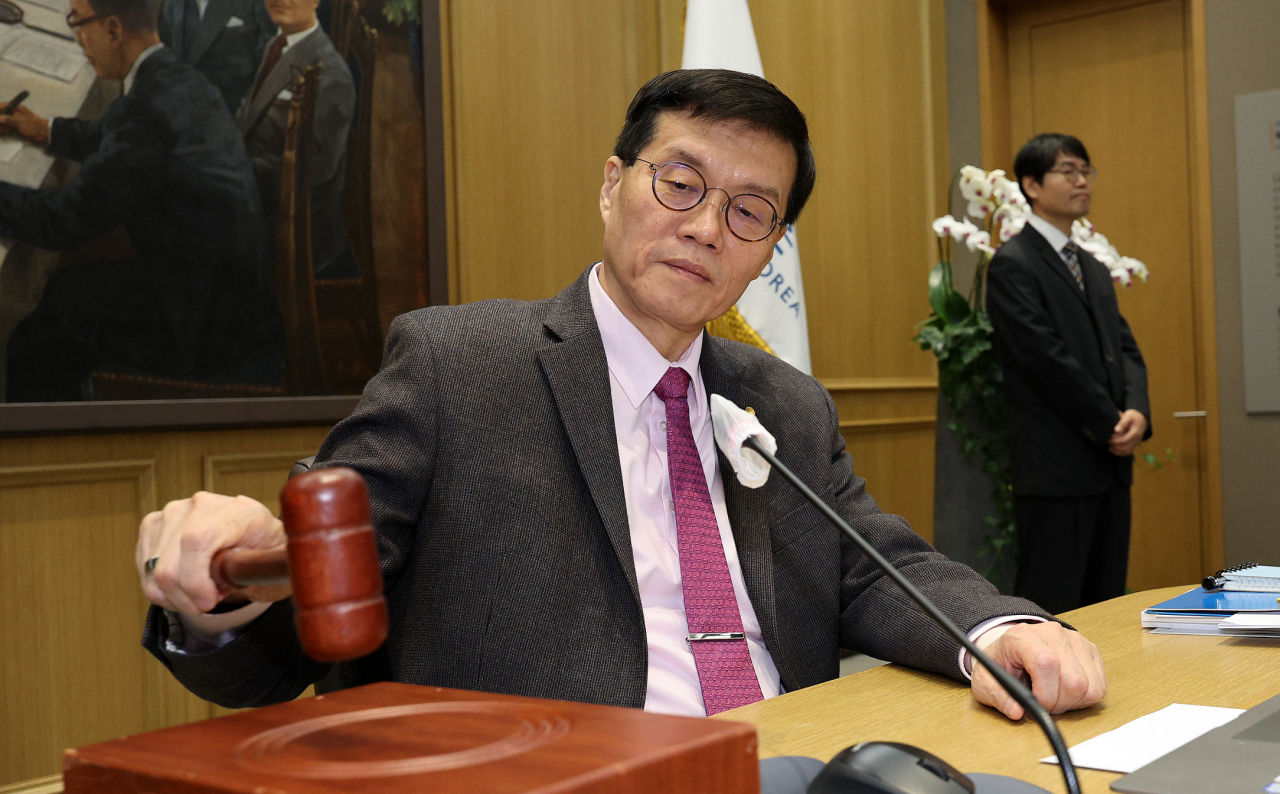BOK extends key rate freeze to 1 year, maintains growth outlook at 2.1%
By YonhapPublished : Feb. 22, 2024 - 10:54

South Korea's central bank froze its key rate for the ninth straight session Thursday amid woes over slower-than-expected inflation moderation and high household debts and maintained its growth outlook for the year at 2.1 percent.
In a widely expected decision, the monetary policy board of the Bank of Korea (BOK) kept its policy rate unchanged at 3.5 percent.
The BOK has stood pat following rate freezes last February, April, May, July, August, October, November and January. The rate freezes came after the BOK delivered seven consecutive rate hikes from April 2022 to January 2023.
The rate freeze took place as South Korea's economy has shown signs of a recovery in exports while consumer spending still remains sluggish amid easing inflationary pressure.
Last year, the economy is expected to have grown 1.4 percent, meeting the central bank's estimate. But its expansion slowed from the previous year's 2.6 percent gain and the 4.1 percent advance in 2021.
For the year, the central bank maintained its growth forecast at 2.1 percent and kept its inflation outlook at 2.6 percent.
"While it is forecast that domestic economic growth will continue its improving trend and that inflation will maintain its slowing trend, it is premature to be confident that inflation will converge on the target level. Moreover, uncertainties surrounding domestic and external policy conditions are also judged to be high," the BOK said in a statement.
The central bank said it is forecast that consumer price inflation will temporarily rise slightly owing to increases in agricultural product prices and then gradually fall again, the central bank said.
"The Board, therefore, will maintain a restrictive policy stance for a sufficiently long period of time until the Board is confident that inflation will converge on the target level," it said.
Asia's fourth-largest economy is facing headwinds, such as a slump in the property market and high household debts.
South Korea's exports decreased 7.4 percent on-year in 2023 amid the sluggish performance of chips coupled with global economic uncertainties.
But the country's exports moved up for the fourth consecutive month in January as exports of chips rose at the sharpest rate in around six years.
Policymakers are also pinning hopes on easing inflation, although the pace of a slowdown is expected to be slower than expected.
The country continued to experience high inflationary pressure last year following the sharpest inflation in decades in 2022.
South Korea's inflation fell below 3 percent for the first time in six months in January, showing signs that inflationary pressure is easing.
But the prices could bounce back again to over 3 percent in the coming months due to rising global oil prices, still higher than the central bank's target of 2 percent.
The central bank is also paying keen attention to rising household debts, which could further weaken domestic demand.
Household loans extended by banks in South Korea rose for the 10th straight month in January, led by rising home-backed loans.
Banks' outstanding household loans advanced 3.4 trillion won last month from a month earlier, accelerating from a 3.1 trillion-won rise the previous month and marking an on-month increase for the 10th month in a row.
The BOK's rate freeze also came in the face of rising woes over project financing developments, which could wreak havoc on financial institutions and further sap domestic demand.
The central bank's rate freeze followed the Federal Reserve's decision earlier this month to hold its benchmark lending rate steady for the fourth consecutive time.
The Fed kept the rate between 5.25 and 5.50 percent and hinted that its hiking campaign -- launched in March 2022 -- may be near or at an end. (Yonhap)



















![[Today’s K-pop] Treasure to publish magazine for debut anniversary](http://res.heraldm.com/phpwas/restmb_idxmake.php?idx=642&simg=/content/image/2024/07/26/20240726050551_0.jpg&u=)